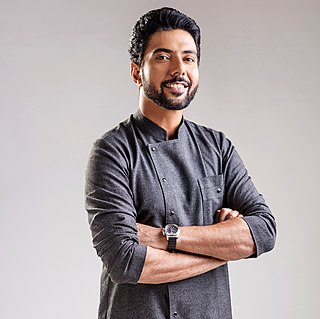A Quote by John M. Grunsfeld
The first thing to know about space food - it is the ambiance; it is the environment. It is not the food.
Quote Topics
Related Quotes
I would require every producer of food to follow and have enforced a standard safety plan. We know how to produce safe food. It has a horrible name; it's called HACCP - Hazard Analysis and Critical Control Point - and this was a food safety system that was developed for NASA so that astronauts wouldn't get sick in outer space. If you just think about what it might be like to have food poison under conditions of zero gravity, you don't even want to think about it.
If there was ever a food that had politics behind it, it is soul food. Soul food became a symbol of the black power movement in the late 1960s. Chef Marcus Samuelsson, with his soul food restaurant Red Rooster in Harlem, is very clear about what soul food represents. It is a food of memory, a food of labor.
Food is "everyday"-it has to be, or we would not survive for long. But food is never just something to eat. It is something to find or hunt or cultivate first of all; for most of human history we have spent a much longer portion of our lives worrying about food, and plotting, working, and fighting to obtain it, than we have in any other pursuit. As soon as we can count on a food supply (and so take food for granted), and not a moment sooner, we start to civilize ourselves.































